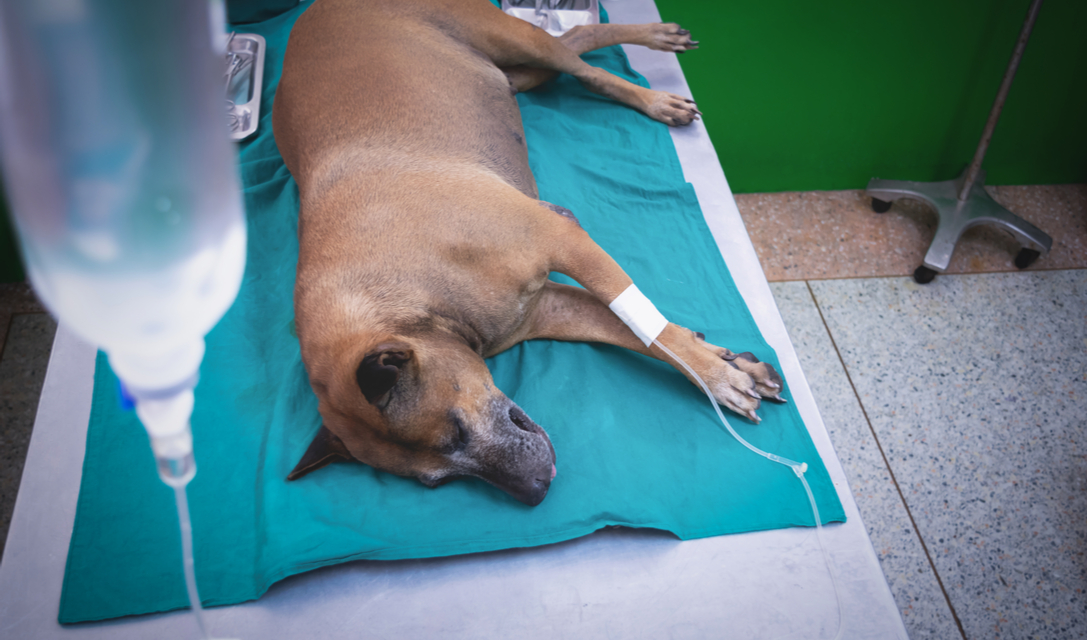Introduction:
Acute renal failure in dogs is a serious condition characterized by a sudden and rapid decline in kidney function. In this comprehensive article, we will explore the causes, symptoms, diagnosis, treatment options, and prognosis for acute renal failure in dogs. By understanding this condition and its management, dog owners and veterinarians can work together to provide timely intervention and improve the chances of a positive outcome for dogs affected by acute renal failure.
Causes of Acute Renal Failure in Dogs:
Acute renal failure in dogs can have various underlying causes, including:
- Toxins and Medications:
Exposure to certain toxins, such as antifreeze, pesticides, or certain medications, can lead to acute kidney injury and subsequent renal failure.
- Infections:
Severe bacterial or viral infections, such as leptospirosis, can cause damage to the kidneys and result in acute renal failure.
- Urinary Obstruction:
Blockages in the urinary tract, such as bladder stones or urethral obstruction, can lead to a buildup of toxins and subsequent kidney damage.
- Dehydration and Hypotension:
Prolonged dehydration or low blood pressure can compromise kidney function and contribute to acute renal failure.
Recommended:
- Petco Review: The Power of Together
- PetSmart Review: Where Pets Inspire Us
- Hill’s Pet Nutrition Review: Pioneering Pet Health and Nutrition
- Royal Canine Review: Tailored Nutrition for Every Pet
- Chewy Review: Pet Care at Your Doorstep
Recognizing the Symptoms:
Identifying the symptoms of acute renal failure in dogs is crucial for early detection and intervention. Common signs include:
- Decreased Urine Production:
A significant decrease in urine output or complete cessation of urination is a common symptom of acute renal failure.
- Increased Thirst:
Dogs with acute renal failure may exhibit excessive thirst and increased water consumption to compensate for the decreased urine output.
- Loss of Appetite:
A decreased appetite or refusal to eat is often observed in dogs with acute renal failure.
- Vomiting and Diarrhea:
Gastrointestinal disturbances, such as vomiting and diarrhea, may occur as a result of kidney dysfunction.
Diagnosing Acute Renal Failure in Dogs:
Diagnosing acute renal failure in dogs requires a thorough examination and diagnostic tests. These may include:
- Blood Tests:
Bloodwork, including a complete blood count and serum biochemistry panel, can provide valuable insights into kidney function and assess the levels of blood urea nitrogen (BUN) and creatinine.
- Urinalysis:
A urinalysis helps evaluate the concentration, composition, and presence of abnormalities in the urine, which can aid in the diagnosis of acute renal failure.
- Imaging Techniques:
Radiographs (X-rays) or ultrasound imaging may be used to evaluate the size, shape, and structure of the kidneys and detect any abnormalities.
- Biopsy:
In some cases, a kidney biopsy may be necessary to obtain a tissue sample for microscopic examination, which can help determine the underlying cause of acute renal failure.
Treatment Options for Acute Renal Failure in Dogs:
The treatment of acute renal failure in dogs aims to address the underlying cause, support kidney function, and manage complications. Treatment options may include:
- Fluid Therapy:
Intravenous fluid therapy is crucial to restore hydration, correct electrolyte imbalances, and support kidney function.
- Medications:
Specific medications, such as diuretics or medications to control blood pressure, may be prescribed to manage symptoms and support renal function.
- Nutritional Support:
A specialized renal diet may be recommended to support kidney health and provide optimal nutrition while minimizing the workload on the kidneys.
- Management of Underlying Causes:
Addressing and treating the underlying cause of acute renal failure, such as removing toxins or resolving urinary obstructions, is essential for successful management.
Prognosis and Follow-up Care:
The prognosis for dogs with acute renal failure depends on various factors, including the underlying cause, severity of kidney damage, and promptness of treatment. Regular follow-up appointments, monitoring kidney function, and adjusting the treatment plan as necessary are crucial for optimal management and long-term prognosis.
Conclusion:
Acute renal failure in dogs is a serious condition that requires prompt diagnosis and appropriate treatment. By recognizing the causes, symptoms, and treatment options discussed in this article, dog owners and veterinarians can work together to provide the best possible care. Early detection, addressing the underlying cause, supportive measures, and regular monitoring are key to improving the outcomes for dogs affected by acute renal failure.
References:
- Langston, C. E. (2012). Acute kidney injury. In Ettinger SJ, Feldman EC, Cote E, editors: Textbook of Veterinary Internal Medicine, St. Louis, 1931-1939.
- Chalhoub, S., & Langston, C. (2013). Acute kidney injury in dogs and cats: a proportional review. Veterinary Clinics: Small Animal Practice, 43(4), 849-860.
- Brown, S. A. (2011). Renal dysfunction in small animals. The Merck Veterinary Manual. 4. Cowgill, L. D., & Polzin, D. J. (2011). Treatment of acute renal failure. In Ettinger SJ, Feldman EC, Cote E, editors: Textbook of Veterinary Internal Medicine, St. Louis, 1939-1943.



